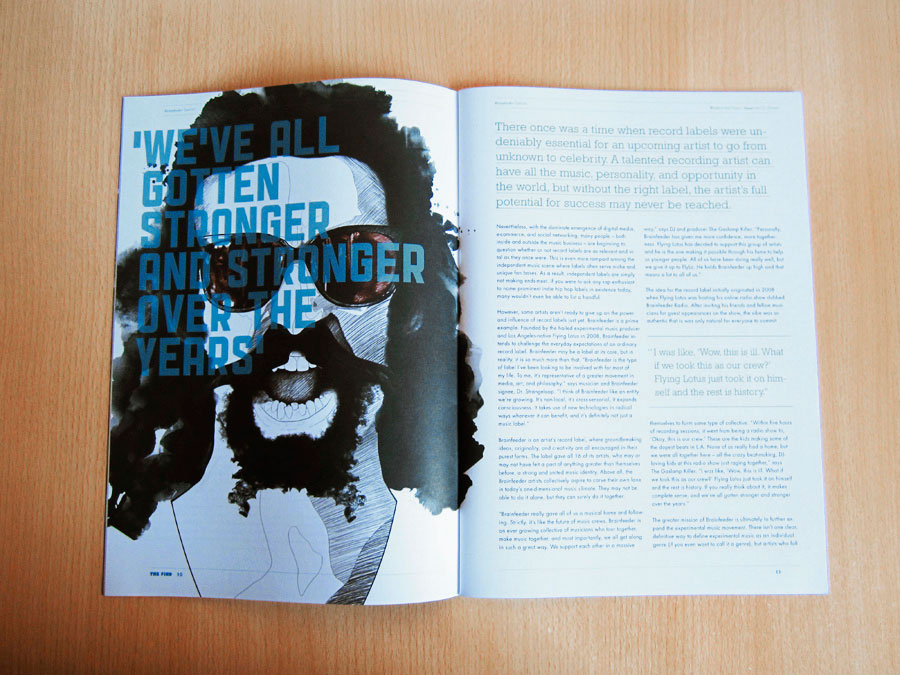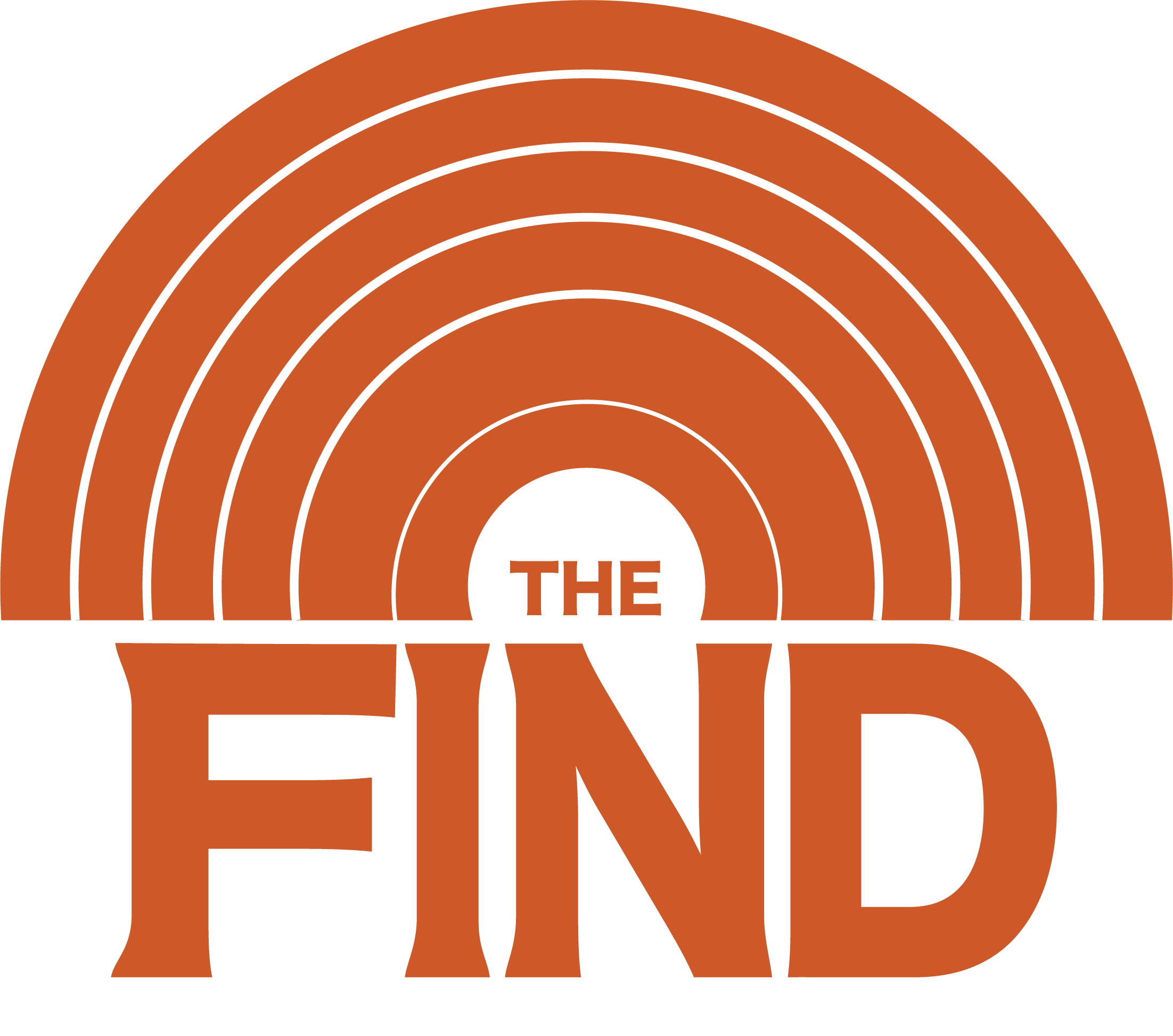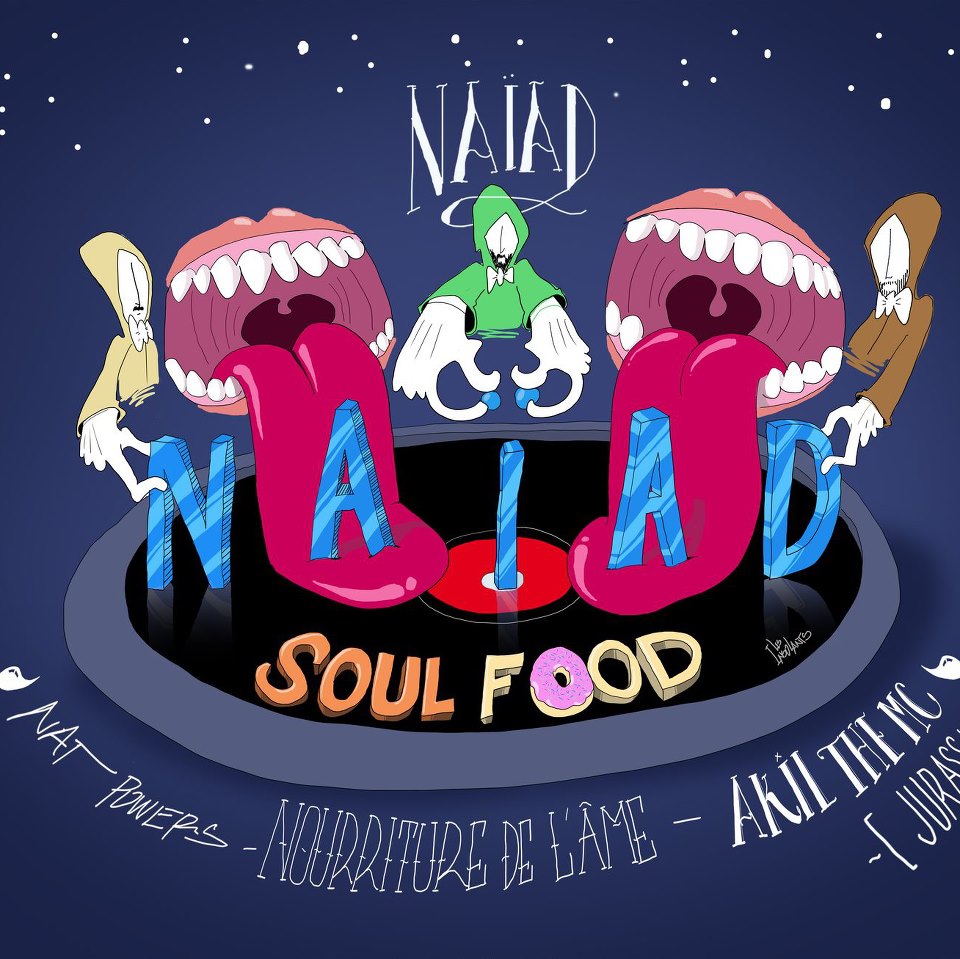The Rise of Brainfeeder (2011 Magazine Cover Story)
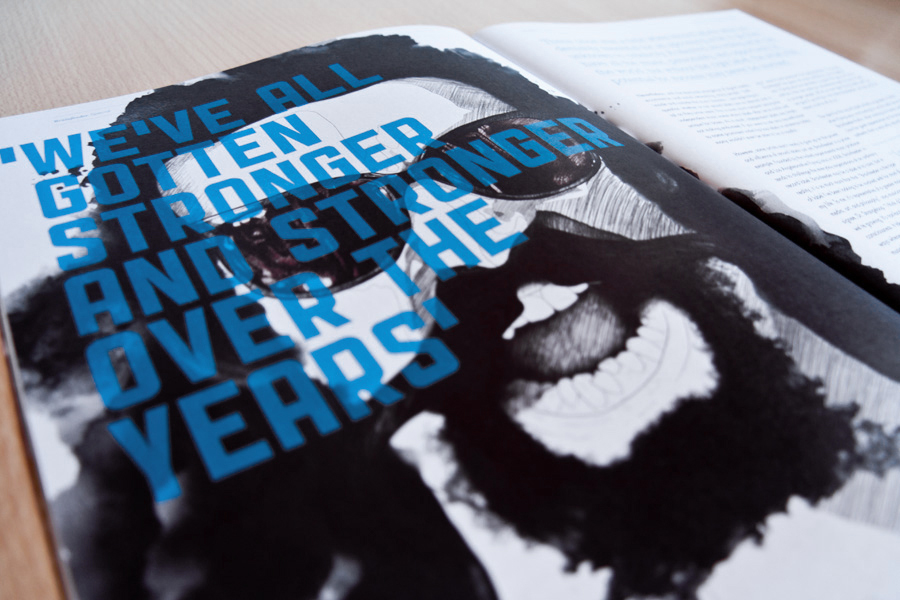
There once was a time when record labels were undeniably essential for an upcoming artist to go from unknown to a celebrity. A talented recording artist can have all the music, personality, and opportunity in the world, but without the right label, the artist’s full potential for success may never be reached.
(Words by Jordan Hung | The Gaslamp Killer Illustration by Laranoia.
Originally published in print: The Find Magazine #4)
Nevertheless, with the dominate emergence of digital media, e-commerce, and social networking, many people – both inside and outside the music business – are beginning to question whether or not record labels are as relevant and vital as they once were. This is even more rampant among the independent music scene where labels often serve a niche and unique fan bases. As a result, independent labels are simply not making ends meet. If you were to ask any rap enthusiast to name prominent indie hip-hop labels in existence today, many wouldn’t even be able to list a handful.
However, some artists aren’t ready to give up on the power and influence of record labels just yet. Brainfeeder is a prime example. Founded by the hailed experimental music producer and Los Angeles-native Flying Lotus in 2008, Brainfeeder intends to challenge the everyday expectations of an ordinary record label. Brainfeeder may be a label at its core, but in reality, it is so much more than that.
“Brainfeeder is the type of label I’ve been looking to be involved with for most of my life. To me, it’s representative of a greater movement in media, art, and philosophy,” says musician and Brainfeeder signee, Dr. Strangeloop. “I think of Brainfeeder like an entity we’re growing. It’s non-local, it’s cross-sensorial, it expands consciousness. It makes use of new technologies in radical ways whenever it can benefit, and it’s definitely not just a music label.”
Brainfeeder is an artist’s record label, where groundbreaking ideas, originality, and creativity are all encouraged in their purest forms. The label gave all sixteen of its artists, who may or may not have felt a part of anything greater than themselves before, a strong and united music identity. Above all, the Brainfeeder artists collectively aspire to carve their own lane in today’s one-dimensional music climate. They may not be able to do it alone, but they can surely do it together.
“Brainfeeder really gave all of us a musical home and following. Strictly, it’s like the future of music crews. Brainfeeder is an ever-growing collective of musicians who tour together, make music together, and most importantly, we all get along in such a great way. We support each other in a massive way,” says DJ and producer The Gaslamp Killer. “Personally, Brainfeeder has given me more confidence, more togetherness. Flying Lotus has decided to support this group of artists and he is the one making it possible through his fame to help us younger people. All of us have been doing really well, but we give it up to FlyLo. He holds Brainfeeder up high and that means a lot to all of us.”
“None of us really had a home, but we were all together here – all the crazy beat-making, DJ-loving kids at this radio show just raging together.”
The idea for the record label initially originated in 2008 when Flying Lotus was hosting his online radio show at Dublab dubbed Brainfeeder Radio. After inviting his friends and fellow musicians for guest appearances on the show, the vibe was so authentic that is was only natural for everyone to commit themselves to form some type of collective.
The Gaslamp Killer: “Within five hours of recording sessions, it went from being a radio show to, ‘Okay, this is our crew.’ These are the kids making some of the dopest beats in L.A. None of us really had a home, but we were all together here – all the crazy beat-making, DJ-loving kids at this radio show just raging together. I was like, ‘Wow, this is ill. What if we took this as our crew?’ Flying Lotus just took it on himself and the rest is history. If you really think about it, it makes complete sense, and we’ve all gotten stronger and stronger over the years.”
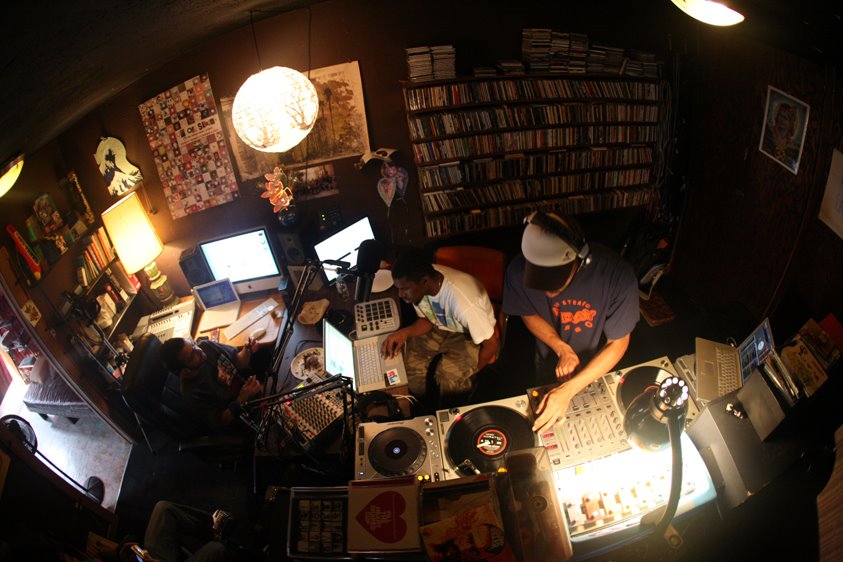
The greater mission of Brainfeeder is ultimately to further expand the experimental music movement. There isn’t one clear, definitive way to define experimental music as an individual genre (if you even want to call it a genre). But artists who fall into this category consistently exercise sound experimentation through characteristics such as distortion, glitch, delay, clicks and cuts, and minimalism. It isn’t’ uncommon for avid music listeners to shy away from experimental music’s distinctive style that is so dissimilar from anything else. And that is perfectly okay with Brainfeeder.
“Maybe the word ‘experiment’ scares people. They just want quality music and hearing the word ‘experimental’ as a whole category might scare them away from hunting down ‘quality experiments’,” says Brainfeeder producer Teebs.
Placing conclusive labels like “experimental” on this musical community simply hinders the artists’ true abilities to take their music wherever they wish. Regardless if it fits into the “experimental” definition or not. Like all other genres of music, experimental music clearly has no boundaries. Which means that all music – no matter what genre – is experimental in one way or another.
“‘Experimental music’ used to make me think of this lonely isle in Amoeba that I’d peruse and feel really dope for taking a chance on some bizarre CD or something.”
“‘Experimental music’ used to make me think of this lonely isle in Amoeba that I’d peruse and feel really dope for taking a chance on some bizarre CD or something,” says Dr. Strangeloop. “That’s not the case anymore. Digital media has connected all these [musical] ‘experiments’. Most music exists now inexorably woven into our networks of communication, bouncing off satellites, clouding the skies, jettisoning through fiber-optic lines. The whole musical thing, the whole information thing, the whole media thing, it’s all a big experiment. ‘Experimental music’ is dead and, in its place, is an infinite landscape of constantly evolving media forms, applications, and permutations of sound and vision.”
In a sense, experimental music doesn’t conform to anybody or anything else other than the artist creating the music at hand. Brainfeeder has naturally adopted this mentality by refusing to conform to being just another typical, average record label.
“Experimental music stands to be a lighthouse in the fog of mainstream saturation. It’s a wave of expression that doesn’t want to take a form,” says Brainfeeder artist Jeremiah Jae. “It is for anyone who cares to listen and remains open to interpretation. The industry will try to fashion it as much as it can, but it remains without a dress code.”
—
